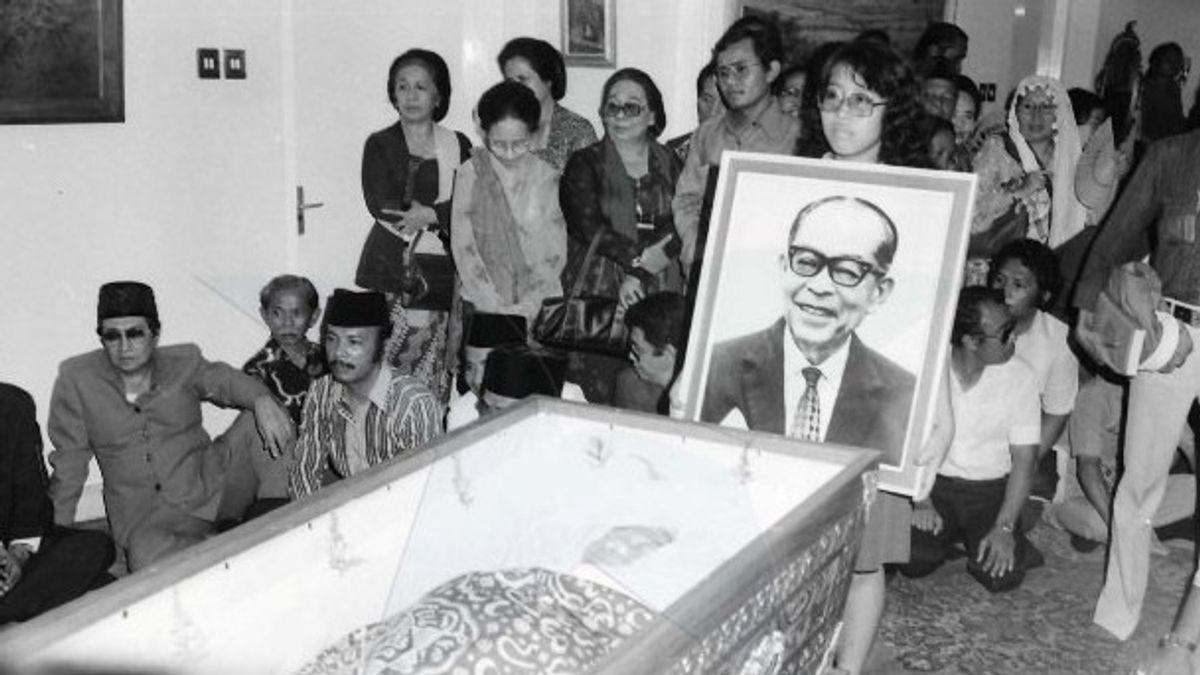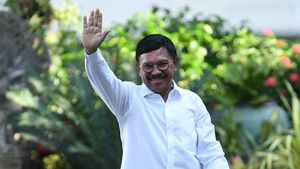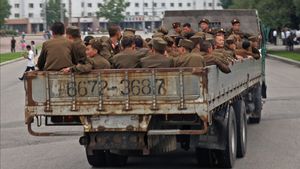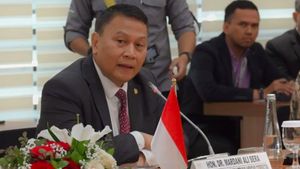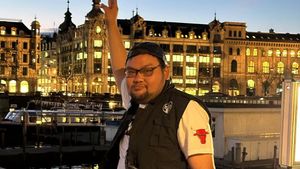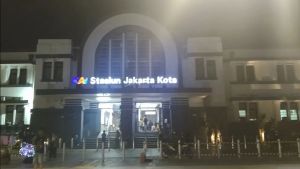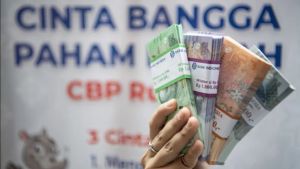JAKARTA History today, 43 years ago, March 15, 1980, former Vice President of Indonesia, Mohammad Hatta was buried in Tanah Kusir Public Cemetery (TPU), Jakarta. The funeral was attended by all state officials. In fact, President Suharto was also present.
Bung Hatta is remembered as a person who has great services for the nation and state. He became the core Indonesian actor to be independent along with other Indonesian freedom fighters. He also accompanied Bung Karno to lead Indonesia.
Bung Hatta is a big figure in the history of the Indonesian nation. His behavior was high. His actions against colonialism were second to none. Bung Hatta feared nothing as long as the truth was with him. It was this act of life that Hatta brought when he studied in the Netherlands.
Instead of only focusing on obtaining a bachelor's degree, his sensitivity to the condition of the colonized Bumiputras is even more honed. He could not stand by watching his people suffer in the archipelago. Bung Hatta also inflamed the struggle in the Netherlands from 1921 to 1932.
It was this struggle that made Bung Hatta feel the cold walls of prisons in the Netherlands. Even inside the prison walls, Hatta was able to channel a defense (pledoi) in a Dutch court that may be remembered throughout the masses. Indonesia Vrij (Indeka Indonesia), his name.
Hatta's ferocity did not necessarily decrease when he returned to Indonesia. He often troubled the Dutch. Hatta often burned the spirit of the people. The colonial government of the Dutch East Indies was overwhelmed. The only option they can do is to go to prison and isolate Hatta.
He was exiled to Boven Digoel (Papua), and Banda Neira ( Banda Islands). Hatta's strength did not decrease. He continued to fight until Indonesia became independent in 1945. He was also asked to be the first Vice President to accompany Soekarno. It was this struggle that formed Hatta's personality as a national figure.
There is a fairly clear impression, Hatta takes a fairly long way in his life. This is possible because of the meeting of factors that support each other in the formation of his personality and way of life. The family background and education in the family have formed Hatta into a religious person who is takwa, diligent, and dispilent and cares about economic problems.
Minangkabau's customary and cultural curvature is a fertile land for Hatta's growth, especially in passion for adding knowledge, being critical and egalitarian. Likewise, the atmosphere of the colonial period has clearly and directly shown Hatta about the condition of concern for society and the nation," said Zulfikri Suleman in the book Democracy for Indonesia: Bung Hatta's Political Thoughts (2010).
The support of the Indonesian people for Bung Hatta poured in. He is considered a role model, both personally and as an official. People know him as an honest, simple, brave, and not crazy figure.
The proof is that Hatta chose to resign as Vice President of Indonesia because he did not trust Bung Karno in 1956. He then continued to actively provide input, sometimes also criticism of state officials until finally his life on March 14, 1980.
Hatta's departure then made the whole of the archipelago grieve. Especially when Hatta was buried according to his will at the Tanah Kusir TPU, Jakarta on March 15, 1980. Those who participated in the funeral were hoarding. President Suharto was one of them.
"But after all, the Republic of Indonesia suddenly seemed to lose a father. When the 4 KM-long procession of bodies Saturday afternoon passed Jalan Jenderal Sudirman, hundreds of people flocked to honor and a number of villages waved white banners with black stripes: Goodbye, My father!"
And when the 77-year-old body was taken down into the grave, at the people's cemetery in Tanah Kusir, it rained until the ceremony was over. Buya Hamka, who led the prayer at the deceased's house and then read a prayer at the grave, cried in the middle of his words, wrote a Tempo Magazine report entitled Bung Hatta's Legacy (1980).
The English, Chinese, Japanese, Arabic, and French versions are automatically generated by the AI. So there may still be inaccuracies in translating, please always see Indonesian as our main language. (system supported by DigitalSiber.id)
